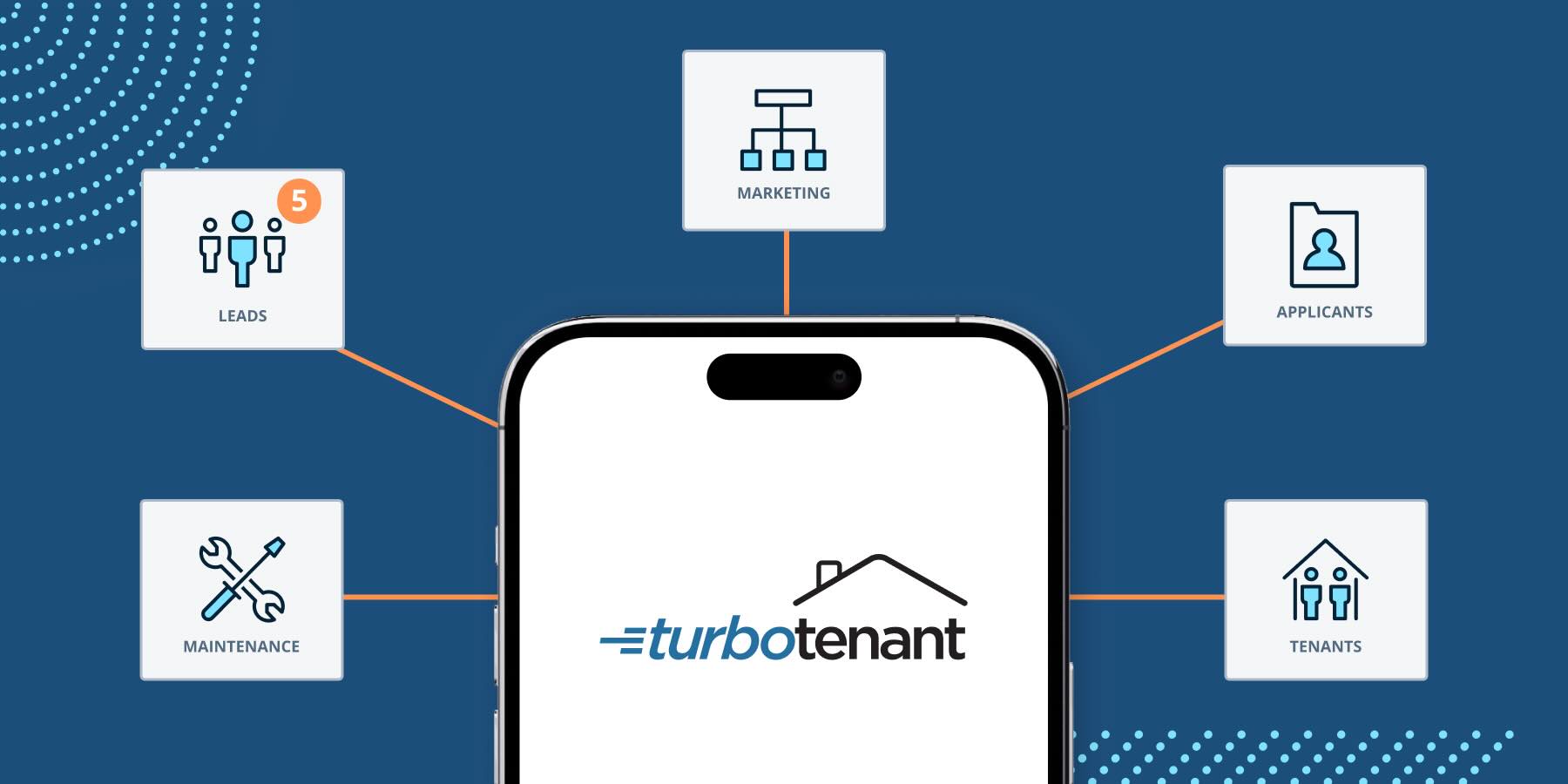Between the risks of running a business, a volatile and ever-changing real estate market, and the sometimes fickle attitudes of the renting public, property managers have a lot to navigate while protecting their livelihoods.
Luckily, there are some tools property managers can use to safeguard their businesses, including insurance. In this guide, we’ll review some of the most common types of insurance property managers can acquire to make sure they’re protected, including:
- General liability insurance
- Professional liability insurance
- Commercial or residential property insurance
- Worker’s compensation insurance
- Tenant dispute insurance
Read on to learn everything you ever needed to know about property management insurance.
Why Property Management Insurance is Critical for Real Estate Professionals
A property manager’s life doesn’t stop at collecting rent. They’re typically responsible for handling tenant disputes, maintaining the physical condition of the property, and tracking financial data. However, without the proper insurance, one lawsuit or accident can upend a lengthy career or cause irreversible harm to a company.
A Quick Note on Property Management Software
Before we get into the nitty gritty of property manager insurance, let us explain how TurboTenant’s property management software can help property managers. If you need a powerful tool for:
Advertising properties
Fielding applications
Screening tenants
Collecting rent
Creating lease agreements or
Managing Your Books
Consider TurboTenant.
Our free account can help you get up and running in minutes, and our low-priced Premium offering delivers value you won’t find in high-cost, per-unit property manager software solutions.
Now, let’s get back to the show.
Who Needs Property Management Insurance and Why It’s Essential

When you consider the extent of the financial liabilities and the risk of unexpected events, it’s easy to see why property management insurance is necessary for property managers and real estate professionals.
The right insurance plan protects against liability claims, professional errors, tenant discrimination allegations, and more, depending on your chosen policy. In short, the right coverage gives property managers the confidence to operate their businesses without the fear that a sudden catastrophe will break the bank.
Common Lawsuits and Claims That Property Managers Face
While it doesn’t happen every day, property managers could face some common lawsuits. Without the proper safeguards, these lawsuits could result in fines, expensive settlements, or a damaged public image.
Some of the common lawsuits property management insurance protects against are:
- Tenant disputes
- Property damage claims
- Property maintenance negligence claims
- Security negligence claims
- Fair housing violations
- Contract breaches
How Property Management Insurance Protects Business Operations and Personal Assets
The above list could be scary for some property managers, but property management insurance could significantly minimize the damage. Depending on the situation, property management insurance acts as a crucial safeguard by helping to cover legal fees, settlements, court costs, medical bills, damage expenses, personal assets, and other liabilities.
Professions That Benefit from Property Management Insurance

Property management insurance can benefit more than just management companies. Because this insurance type encompasses a broad scope, the right policy could benefit investors, real estate agents, brokers, short-term rental hosts, developers, builders, and leasing agents.
Management Consultants: How Property Management Insurance Protects Advisory Roles
Management consultants can play a critical role in helping investors and property owners make smarter and potentially lucrative investment decisions. However, providing strategic advice can bring its own set of risks to the conversation.
Miscalculating or misinterpreting the market, claims of negligence or malfeasance, or legal disputes can lead to costly liabilities all the way up the investment food chain, so management consultants must take proper precautions and utilize property and liability insurance.
Real Estate Agents: Why Property Management Insurance is Crucial for Real Estate Professionals
Real estate agents juggle multiple responsibilities when working with clients. Buying, selling, and leasing property can be complicated and weighty, with potentially enormous amounts of money on the line.
Property management insurance can, therefore, be a game-changer for real estate agents. It can help with liability coverage for errors and omissions, general liability protection against third-party claims, contract breaches, or other issues that could arise while doing business.
Architects: How Property Management Insurance Protects Design and Project Oversight
Architects play an essential role in the world of real estate. From designing the structure to overseeing construction and ensuring compliance with building codes and laws, architects can encounter a number of risks and potential liability issues.
Professional liability coverage can protect architects from defect claims, miscalculations, or flaws that lead to structural challenges. In contrast, general liability coverage could protect against claims made during the construction process. While property management insurance may not be the first thing architects think of, it might be worth considering second.
Types of Property Management Insurance Property Managers Should Consider

As we’ve seen, there are a number of situations where property management insurance can mean the difference between a long-term business and hanging up a permanent “closed” sign.
In this section, we’ll dive deeper into the specific kinds of coverage property managers might consider.
Professional Liability Insurance for Property Managers
Property owners’ liability insurance is a kind of business insurance for rental property that applies to a number of use cases, such as:
- Claims of negligence from tenants
- Errors and omissions or administrative mistakes
- Legal defense and settlements if a tenant or building owner sues a property manager
- Breach of contract protection
General Liability Insurance for Property Managers
Where professional property management liability insurance coverage tends towards service-related liability protections, general liability insurance is more geared towards physical and third-party risks that property managers might encounter, including:
- Medical expenses and legal fees if a tenant, visitor, or vendor is injured on a managed property
- Damage to someone else’s property caused by the property manager or a vendor on-site
- Legal fees and settlements for on-site negligence or safety hazard claims
Property Insurance for Property Managers
Insuring the property itself is incredibly important for the long-term health of investment properties. Property insurance covers things like:
- Protection for buildings and structures in cases of fire, storms, vandalism, and other covered events
- Theft and vandalism protection
- Natural disaster protection
- Loss of rental income if a property is rendered temporarily uninhabitable due to covered damage
Workers’ Compensation Insurance for Property Managers
As a business with a physical component, ensuring employees are protected from the everyday risks of their jobs is a key responsibility for property managers. Workers’ compensation insurance typically covers:
- Medical expenses for work-related injuries
- Lost wages due to work-related injuries
- Illnesses directly related to work
Tenant Dispute Insurance for Property Managers
One of the most common challenges a property manager faces is tenant disputes. From lease agreement disputes to payment backlogs to potential discrimination claims, covering your bases with the right insurance coverage is critical.
Some of the challenges tenant dispute insurance might protect against include:
- Legal fees for assistance during evictions
- Legal costs and fees if a tenant brings a lawsuit
- Legal costs and fees in cases of lease agreement disputes
- Fair housing and discrimination protections
Commercial Auto Insurance for Property Managers
Many property managers oversee more than one property, often requiring travel between locations. Typically, however, standard auto insurance does not cover all aspects of business-related travel, necessitating additional commercial auto insurance, which covers:
- Accidents during business travel
- Vehicle damage and theft
- Employee vehicle repairs
- Liability protection for injuries and property damage
Umbrella Insurance for Property Managers
While the above insurance types offer essential protection for property managers, sometimes coverage limits can exceed what’s required.
In this case, umbrella insurance could provide an extra boost for specialty property managers. Umbrella coverage provides:
- Extra liability coverage and financial protections
- Coverage for large lawsuits and settlements
- Backup protection for blanket coverages
- Protection for personal and business assets
Top Benefits of Using TurboTenant for Property Management

As you’ve seen, property management insurance is an essential tool for property managers, no matter how many properties you manage. And as that investment portfolio grows, so does the workload, leaving property managers with a seemingly endless list of tasks that need completing.
TurboTenant is a high-powered property management software that helps property managers and landlords streamline their day-to-day operations.
Streamline Property Management with TurboTenant’s Software for Property Managers
Property management software has come a long way, and TurboTenant can help you make property management easier at a relatively low cost. With TurboTenant, landlords get access to:
Automate Communication and Simplify Operations with TurboTenant
TurboTenant’s robust communication tools facilitate open communication between property managers and tenants, leading to better tenant retention and conflict avoidance. The platform also features mobile apps and automation tools for rent reminders and maintenance requests, which can improve communication with tenants and vendors.
Property Management Insurance FAQs







